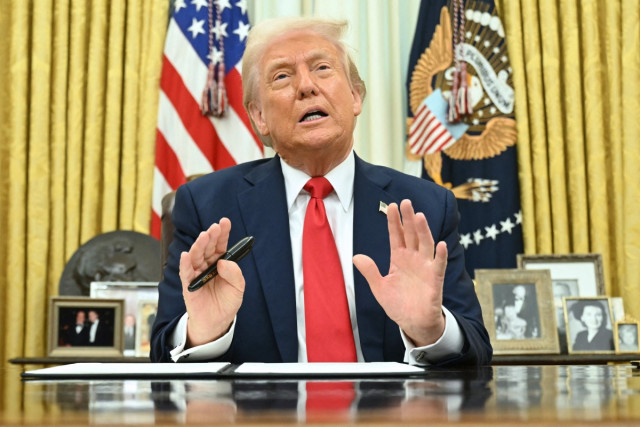President Donald Trump has enacted a new proclamation prohibiting citizens from 12 nations from entering the United States, pointing to national security issues.
The comprehensive travel ban impacts nationals from Afghanistan, Myanmar, Chad, Congo, Equatorial Guinea, Eritrea, Haiti, Iran, Libya, Somalia, Sudan, and Yemen, set to take effect on June 9, 2025. Furthermore, there are partial restrictions for citizens of Burundi, Cuba, Laos, Sierra Leone, Togo, Turkmenistan, and Venezuela.
There are certain exemptions, including athletes traveling for major sporting events, some Afghan nationals, and dual nationals from countries not affected, as reported by the BBC.
Trump emphasized that the initiative aims to prevent those deemed potential security threats from entering the US, stating in a video message on X on Wednesday: "We cannot have open migration from any country where we cannot safely and reliably vet and screen."
According to the White House, the countries with the strictest limitations were identified as having a significant terrorist presence, insufficient cooperation on visa security measures, and weak systems to verify travelers' identities.
The administration also highlighted issues like inadequate criminal record-keeping and high rates of visa overstays as contributing factors. This new directive is a continuation of Trump's broader immigration crackdown that began at the start of his second term.
On January 20, the president signed an executive order requiring more rigorous security checks for foreign nationals and directed federal agencies to assess which countries should be subjected to entry suspensions because of poor vetting processes.
This action parallels Trump’s contentious travel ban during his first term, which initially focused on seven predominantly Muslim countries and was upheld by the US Supreme Court in 2018 before being rescinded by President Joe Biden in 2021, who called it "a stain on our national conscience."




















